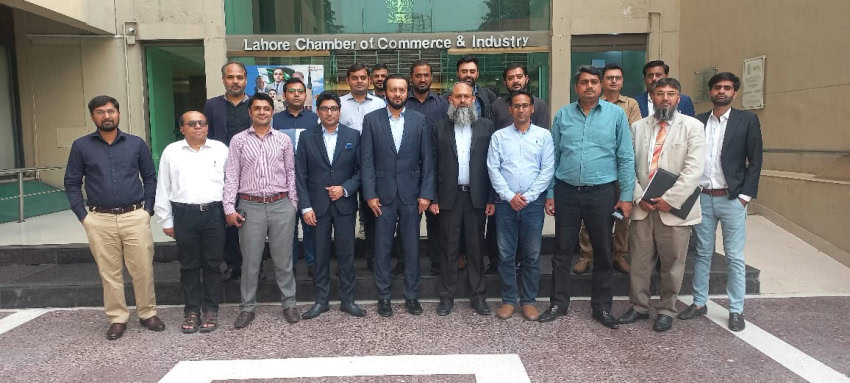LAHORE – To reduce the electricity tariff, it is important to find ways to bring down the cost of power production. One effective way to achieve this is by eliminating the uniform tariff policy and instead holding distribution companies accountable for managing losses in their respective territories. This will encourage greater efficiency and responsibility on their part, ultimately benefiting consumers.
During a discussion on the impact of the increase in power tariffs on consumer affordability, Discos recoveries and circular debt, organized by the Lahore Economic Journalists Association (LEJA), the experts made several suggestions. Some of the suggestions included appointing more professionals in Discos, increasing power generation from indigenous resources and renewable sources, and separating financial recoveries, such as taxes and fees of other departments, from electricity bills. The experts also emphasized the need to protect good power-paying consumers and penalize power thieves.
President LEJA Muhammad Sudhir Ch referred to a study conducted by the Institute of Policy Studies (IPS) which analyzed the impact of rising electricity prices on consumer behaviour. He mentioned that increased tariffs have significantly affected the paying capacity of power consumers, leading to a substantial decrease in recoveries and adversely affecting the power sector’s circular debt.
Hafiz Muhammad Numan, the Chairman of the Lesco Board, agrees with the viewpoint that Discos must implement the tariff set by the government of Pakistan through NEPRA. Due to the increase in power tariff, as a result of IMF pressure, and the capacity charges paid to the IPPs, the cost of electricity has gone up. However, despite this, Lesco still receives 30,000 fresh connection applications every month since electricity is a basic necessity of life.
Hafiz Numan said that Lesco is on the top in the ongoing power recovery campaign launched by the government of Pakistan, despite the fact it was already underway. The company has planned to establish its police and is requesting the Punjab government to link any of the property transactions with Lesco NOC. During the last 11 months, the LESCO response time has been down to one hour from three hours.
Energy Expert (former MD PEPCO) Tahir Basharat Cheema said Kasur was at the top of the power theft list in the LESCO region of over Rs 20 billion. He mentioned that the capacity payment charges issues could be resolved if the government ends the forced load management. There is still more than 5000 megawatt demand in the system which could be immediately supplied from the available resources.
Ending the uniform tariff policy, Cheema suggested that the government must end this system so the discos will work efficiently and below-par performing discos will work to improve their performance. Further, he asked to end the load of all taxes, and the fee which is almost 30 per cent of the total bill of almost each consumer.
About the privatization of the power sector or dispensing it to the provincial governments to end the menace of circular debt, he believed that the government is working on the management contracts of handing over the discos to the private sector for 20-25 years alongside its regulations since handing over to the provinces is unworkable.
CEO Lesco Shahid Haider said that Lesco registered 22,683 FIRs against the power theft and recovered Rs 600 million against the demand generated of Rs 1.91 billion. Besides, the LESCO has taken action against 70 employees involved in power theft while more than a dozen have already been terminated from the services after being proven guilty.
Giving perspective from KE’s territory, Director Communications Imran Rana said during the last 10 months KE conducted over 14000 kunda raids and removed over 130,000 kilograms of illegally hooked kunda connections in the distribution network. According to World Bank reports, more than 50 per cent of the city was unplanned since it was challenging to smooth power supplies to the city. The KE registered more than 750 FIRs against 74000 power theft cases of over 70 million power units’ theft and recovered more than Rs 60 million.
The KE stood as the most improved distribution company with Rs 474 billion investment in the company’s value chain since privatization. Resultantly, the T&D losses have been reduced from half since 2005, from 38 per cent to 15.3 per cent even below the NEPRA targets.
KE’s investment plan 2024-2030 with a prospective investment of Rs 484 billion was submitted to the regulatory authority NEPRA whereby by 2030, KE has a target of having a 30 per cent share of generation from renewables, adding 30 per cent more customers and further reduce power outages by 30 per cent, Imran added.
President Lahore Chamber of Commerce Kashif Anwar stressed the need to use renewable resources for power generation including the construction of Kalabagh Dam and indigenous solar power generation. He said Pakistan needs a charter of economy before the election so the country is put on the growth path. He mentioned that power theft could not be possible without the conveyance of the distribution companies’ staff so their accountability of them is crucial.














